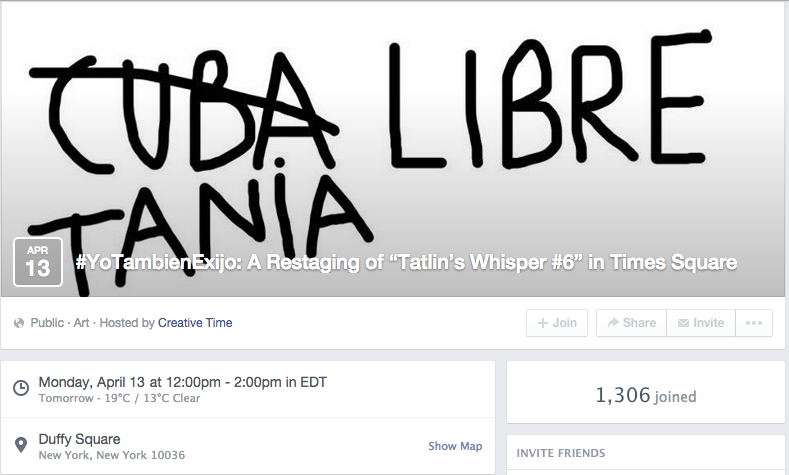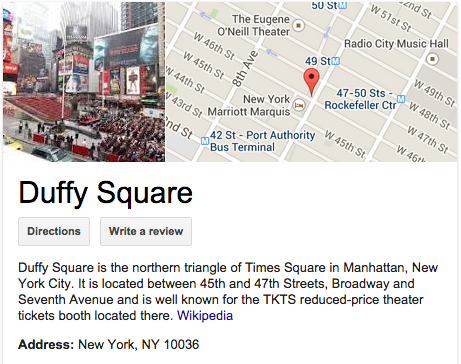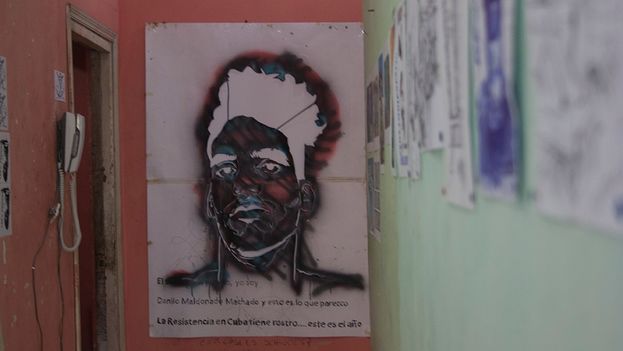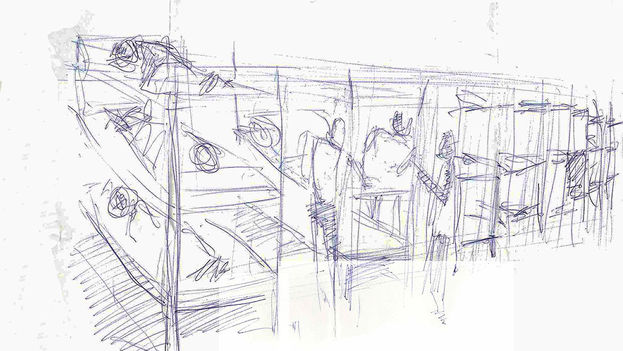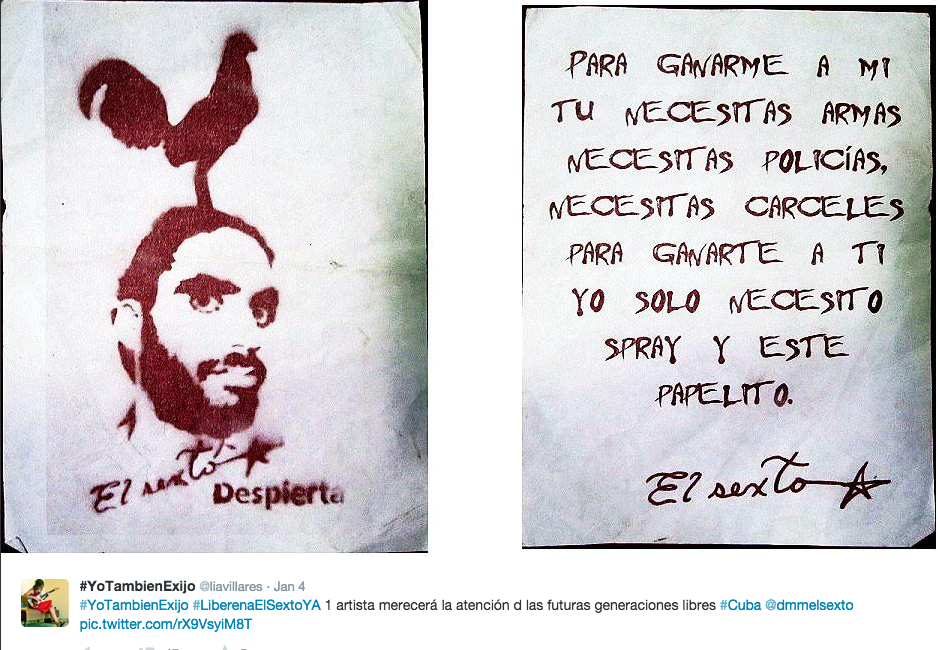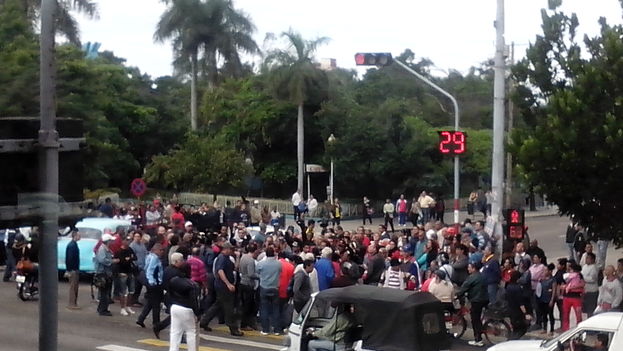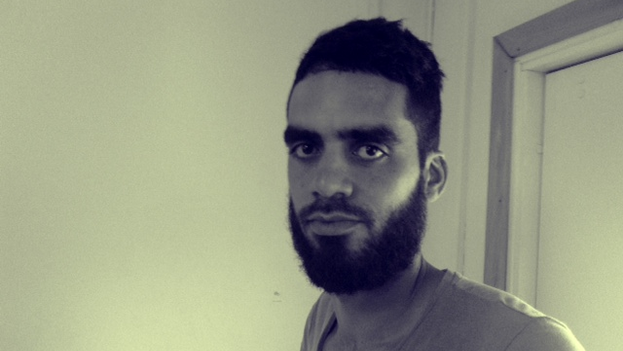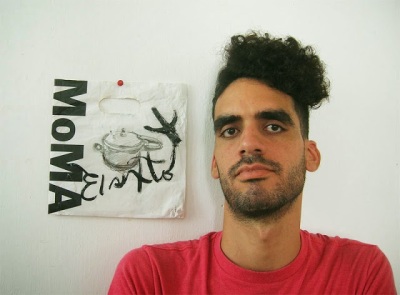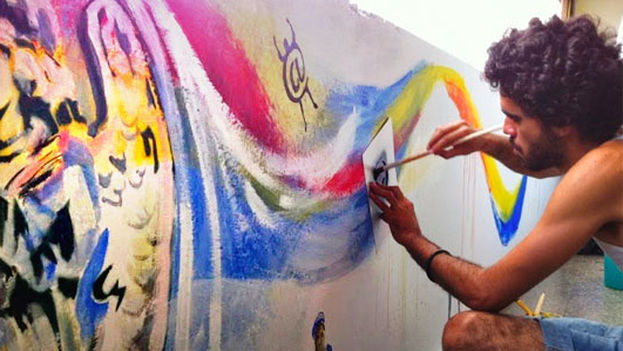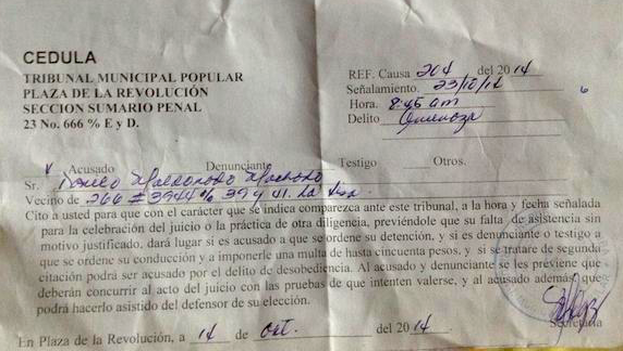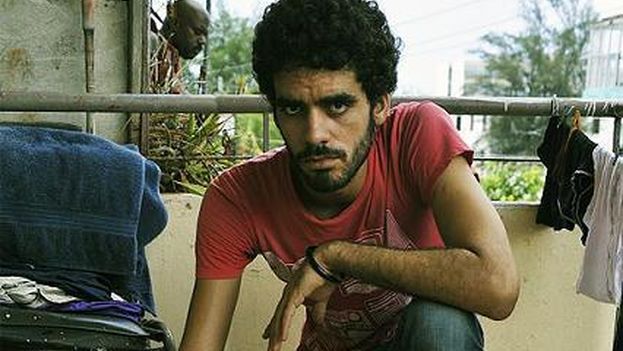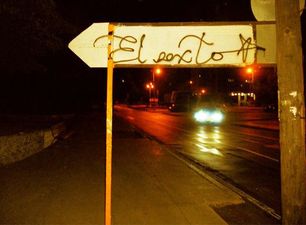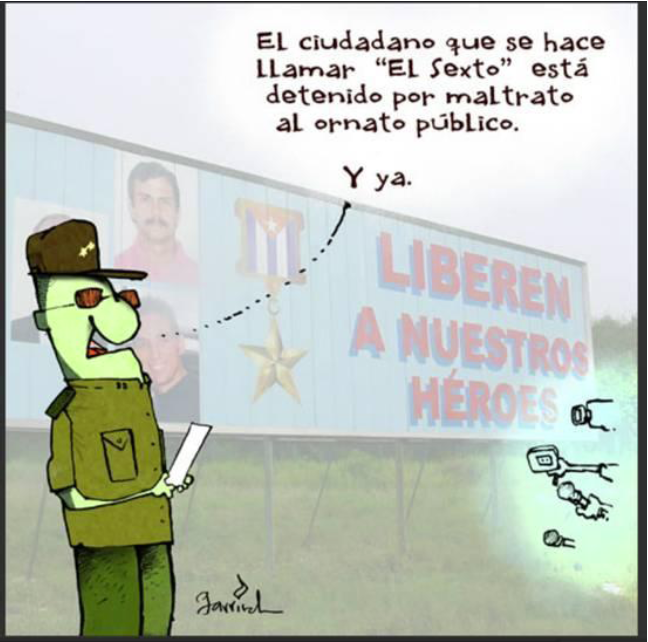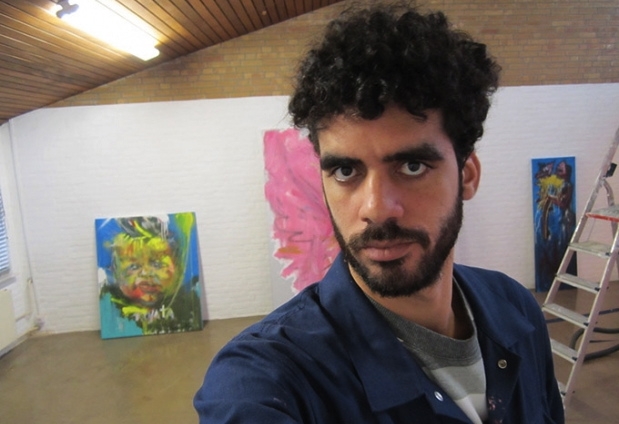
The sixth WHAT? People wondered when his graffiti started appearing around the city. And then it was more than a signature. But the irreverence is unforgiven. State Security is not about to understand this punk aesthetic, much less the art of graffiti. The forces of order are too serious.
For them, Danilo Maldonado, alias “El Sexto” (the Sixth), is a criminal who dirties (even more) the city, A coarse guy who makes everything into a joke and has no fear. So of course, there must be war. He can’t spray graffiti, much less exhibit in a gallery. This would be to accept him as an artist. And he isn’t one. He is a citizen non grata who although abroad, continues to suffer some consequences.
In this interview he talks about the most recent censorship of his work and announces his return to the Island after completing his Shelter City: the Hague fellowship, awarded by Justitia et Pax.
For El Sexto, what are the boundaries between art and social and political activism?
For me the boundaries between art and social and political activism sound like restrictions, and restrictions, to me, sound like a lack of freedom to create, and what’s more, they sound like communism.
I like the idea of breaking boundaries: and this fits with my beliefs, with what seems solid to me. I’m constantly at war with myself trying to better myself. I tell myself I have gotten this far, why not go further. If I do graffiti at night, why not do it in the day. If this is who I am, why hide. So I want to defend those who share my art, no matter what, why not do it.
I don’t understand why people put themselves in cages. For me, art is in everything. A can do a lot, even cross the lines of politics which I also believe in an art although it is practiced with lack of sincerity in my country.
People love to set boundaries, but art and politics are a game in which we ourselves impose the boundaries, not those who would limit us. So breaking them is good, because it’s the first step to finding the interior freedom that we’re lacking.
I hear you’ve set aside graffiti and started to conceive of your work in galleries. When will we see your exhibition at the Christ the Savior Gallery?
Yes, I’ve set it aside because I work all the time, so I get to experiment with canvas, cardboard. Recently I had the chance to put together at least sixteen canvases of 6 feel by eight feet, several cardboards, photographs and sculptures, for an exposition in Christ the Savior Gallery.
But as you know, my work makes the galleries panic, even the independent ones, so I’ve only exhibited at La Paja Records, and at Estado de SATS; later in the Christ the Savior Gallery, in a Graffiti Festival where I will have the chance to do a two-person exhibit with the graffiti artist and fine artist José Ernesto Rodríguez,
son of Silvio Rodriguez.
At that time, like always, it was under pressure. And they lost–only–the photos of my pieces take by the photographer Marcel.
However, when I’d put together this much work, Otari Oliva was very excited to see that finally it was possible for me to have a personal exhibition. And excited because Christ the Savior Gallery would be the first independent gallery — not associated with “activists” or “politics” — according to him — to show my work. So I left them in his house with everything arranged for September.
During that time, Otari sent me emails asking to postpone the expo until October because he was still arranging travel and such… but the same month, on 21 September, there was an exhibition held in Christ the Savior, of Ernesto Oroza.
Needless to say that made me sad. I did not understand why, if this date was planned for my first exhibition, someone would have a show before me. But fine, we went back to setting a date for October, in the first five days.
And again, emails from Otari saying that he was getting too much pressure, and that State Security wanted to see my works. What he told me was that he refused and preferred to remain silence and not to talk to the media because he’s afraid that what happened to Estado de SATS would happen to the gallery. And he also said that Chris the Savior was cultural, not political. But above all, that I should wait for everything to calm down without saying a word about my situation.
That reminded me of the attitude taken every day by the Cuban government and its repressive philosophy, “the place and time.” So I was left frustrated that couldn’t see my work and deserved an explanation. Once again, I’ve been censored by State Security and the fear some people have of keeping their word and not fighting tooth and nail for what is worthy and what they love, art.
Does that mean censorship in Cuba gains space, because who can confront them, make them give up? Do you think art and independent spaces could make a difference?
Of course. Those who have managed to snatch a scrap of earth for freedom are the independent spaces and if they give in… They [State Security] already have the formula: “I scare you a little and you give in and now everything’s fine.” But I think if someone has managed to create an independent space and proclaim it as such, then they acquire certain responsibilities, and one of them is not to be an extension of State censorship.
To what extent can you limit this negative? Have you thought about changing strategy? This could be a good turning point for how visual arts are perceived on the island, but that, I think, must be done from within.
Sometimes I feel pessimistic, especially when I see how some people behave. People do not understand that the struggle has to be waged from within Cuba. I do my work without forgetting my family. My language and my reality are there.
Then on your return how do you see Danilo as an artist? Do you go back to the streets, or maintain this change of perspectives?
The streets would love to see the last of me, but that’s beyond me, it’s my therapy. From the first graffiti I couldn’t turn away from the street. Here in the Netherlands I’ve also gotten in trouble, don’t think it’s just in Cuba.
However, sometimes I take a rest or change tools. I play with video, performance, painting, photography… I love being tested with other materials, it’s also another space outside the official, it’s simply to grow as an artist, as a human, to find other languages to express an idea. I’m just telling you there will be surprises, for the Cuban streets and for the galleries as well, why not?
More photos are here.
María Matienzo Puerto | Havana
From DiariodeCuba.com | 9 Nov 2013

![]() 14ymedio, 15 April 2105 — The Cuban artist Danilo Maldonado, known as El Sexto (The Sixth*), is one of three winners of the 2015 Václav Havel Prize for Creative Dissent, as announced on Wednesday by the New York-based Human Rights Foundation (HRF). Also receiving the prize are members of the Sudanese non-violent resistance movement Girifna, and the Indonesian comic Sakdiyah Ma’ruf. The prize will be awarded in an Oslo Freedom Forum ceremony on May 27.
14ymedio, 15 April 2105 — The Cuban artist Danilo Maldonado, known as El Sexto (The Sixth*), is one of three winners of the 2015 Václav Havel Prize for Creative Dissent, as announced on Wednesday by the New York-based Human Rights Foundation (HRF). Also receiving the prize are members of the Sudanese non-violent resistance movement Girifna, and the Indonesian comic Sakdiyah Ma’ruf. The prize will be awarded in an Oslo Freedom Forum ceremony on May 27.
